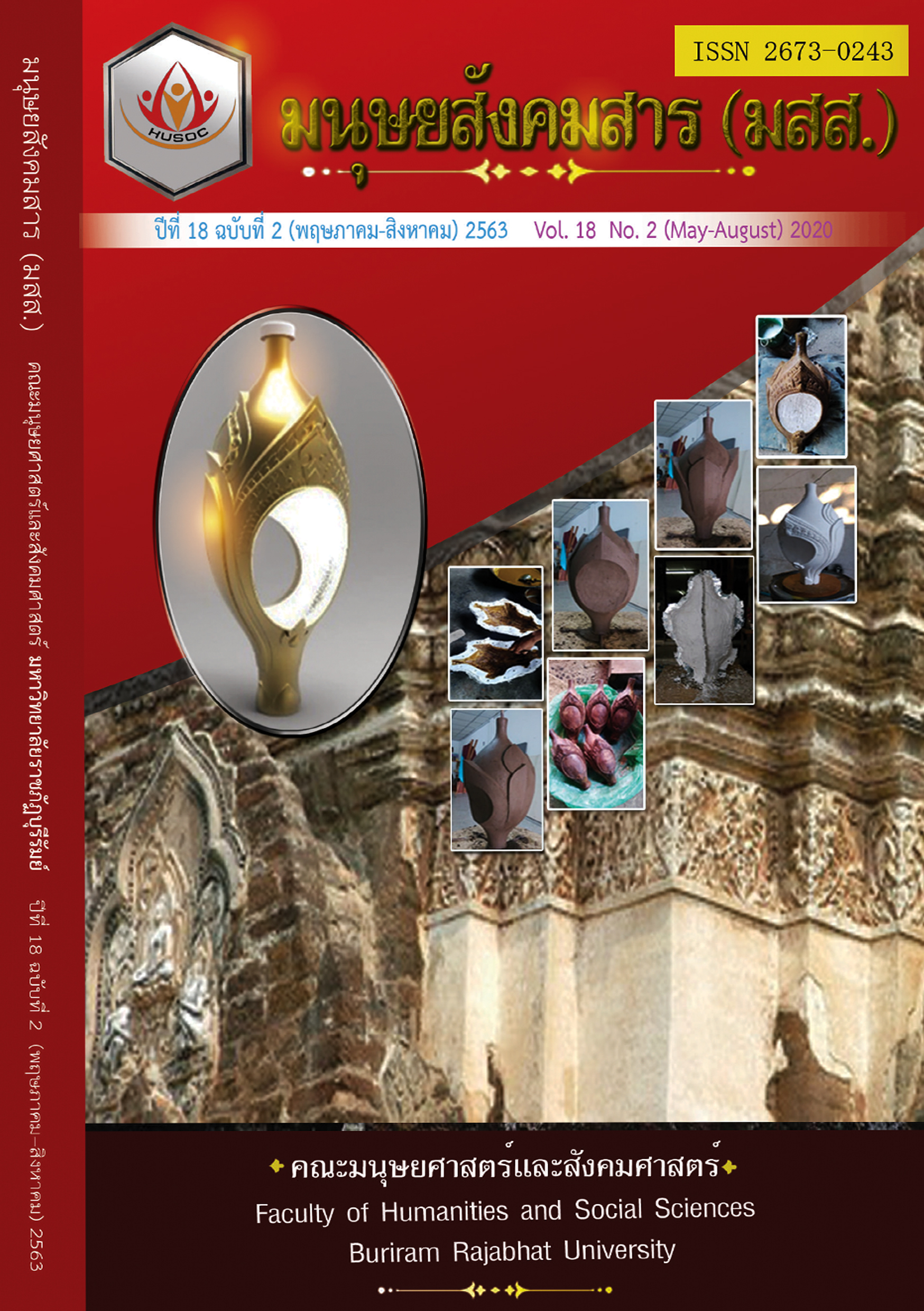Development of a Model for Enhancing the Learning Skills of Students in Early Childhood Education using a Community-based Case Study on Child Development Centers in Nakhon Nayok Province
Main Article Content
บทคัดย่อ
This research aims to develop a model for enhancing the learning skill of Students in Early Childhood Education using community-based learning. For the developing of the model, a case study of child development centers in Nakhon Nayok province has been conducted. Later a broader study throughout the central region of Thailand has been conducted in order to assess the effectiveness of the model. The research methodology consists of two steps: 1) Developing the model using document synthesis and an in-depth interview with fifteen experts in early childhood education management using a structured interview. The suitability of the model was examined by 10 experts forming a focus group. Then the feasibility of applying the model in educational management has been examined using questionnaires. The population was 156 people, consisting of the heads of child development centers and academic officers under the jurisdiction of the local administrative organization, Nakhon Nayok Province. 2) The effectiveness of the model has been examined by using confirmatory factor analysis of a sample group of 560 people, which derived from multi-stage sampling, consisting of the heads of child development centers in the central region. The questionnaire with 50 questions had a reliability value of 0.98. The findings are as follows:
- The model is suitable. It consists of 3 main components and 9
sub-components. The first main component is preparation, which includes
1) a community potential analysis, 2) a curriculum preparation/learning management plan, 3) teacher readiness preparation and 4) educating parents. The second main component is learning management, consisting of 1) physical and movement development, 2) emotional and mental aspects 3) social aspects and 4) intelligence. The third main component is learning assessment. The indicators for all components range in the average between 3.62 - 4.28, and hence show the suitability of the developed model.
2. The efficiency of the model was consistent with the empirical data based on the chi-square value 23.65, with 16 degrees of freedom and a probability value of .09. Every variable component is positive, with values ranging from 0.89 to 0.94 with statistical significance at the level of .01.
Article Details
เนื้อหาและข้อมูลในบทความที่ลงตีพิมพ์ในวารสารทดสอบระบบ ThaiJo2 ถือเป็นข้อคิดเห็นและความรับผิดชอบของผู้เขียนบทความโดยตรงซึ่งกองบรรณาธิการวารสาร ไม่จำเป็นต้องเห็นด้วย หรือร่วมรับผิดชอบใดๆ
บทความ ข้อมูล เนื้อหา รูปภาพ ฯลฯ ที่ได้รับการตีพิมพ์ในวารสารทดสอบระบบ ThaiJo2 ถือเป็นลิขสิทธิ์ของวารสารทดสอบระบบ ThaiJo2 หากบุคคลหรือหน่วยงานใดต้องการนำทั้งหมดหรือส่วนหนึ่งส่วนใดไปเผยแพร่ต่อหรือเพื่อกระทำการใดๆ จะต้องได้รับอนุญาตเป็นลายลักอักษรจากวารสารทดสอบระบบ ThaiJo2 ก่อนเท่านั้น
เอกสารอ้างอิง
Bednar, S. & Simpson, N. B. (2013). Incorporating community-based learning in a course on the economics of poverty. Retrieved on 14 June 2018 from https://www.aeaweb.org/conference/2014/retrieve.php?pdfid=214
Bedri, Z, de Frein, R. & Dowling, G. (2017). Community-based learning: A primer. Irish Journal of Academic Practice, 6(1). Retrieved on 14 June 2018 from https://arrow.dit.ie/ijap/vol6/iss1/5
Bryant, C. K. & Hungerford, J. M. (1977). An analysis of strategies for teaching environmental concepts and values clarification in kindergarten. Journal of Environmental Education, 4, 44-49.
Buajoom, D., Intarakamhang, U. & Boonprakob, P. & Thanachanan, S. (2014). The development of learning model by community based approach for establishing both vocational interests and skills on local careers for the students of Ban-Panaeng Wottaya School. Journal of Behavioral Science, 20(2), 19-36. [in Thai]
Caine, R. N. & Caine G. (2002). Reinventing schools through brain-based learning. Educational Leadership, 43-47.
David, Tricia. (1999). Young children learning. London: Paul Chapman.
Flecky, K. (2011). Foundations of service learning. Jones and Bartlett. Retrieved on 14 June 2018 from http://samples.jbpub.com/9780763759582/59582_CH01_FINAL.pdf
Heckman, J. J. (2004). Invest in the very young. Encyclopedia on Early Childhood Development. Retrieved on 24 May 2019 from http://www.child-encyclopedia.com/documents/HeckmanANGxp.pdf
Heckman, J. J., S. H. Moon, R. Pinto, P. A. Savelyev & A. Yavitz. (2010). The rate of return to the high scope perry preschool program. J. Publ. Econ. 94(1–2), 114–128.
Hohmann, M. & Weikart, D. P. (1995). Active learning practices for preschool and child care programs, Educating young children, High/scope press.
Hohmann, M. & Weikart, D.P. (1995). Education young children. Ypsilanti: High/Scope Press.
Lamapisan, S., Khamok, S. & Srivichai, W. (2009). Early childhood development by using educational resources community learning is based on community participation. Case study of child development center in Phrae Sub district Administration Organization, Hang Dong District, Chiang Mai Province. Retrieved on 14 June 2018 from http://www.tnrr.in.th/?page=result_search&record_id=200269
Massoglia, D. R. (1977). Early childhood education in the home. New York: Delmar.
Melaville, A, Berg, A. C. & Blank, M. J. (2015). Community-based learning: Engaging students for success and citizenship. Partnerships/Community. Paper 40. Retrieved on 15 June 2018 from http://digitalcommons.unomaha. edu/slcepartnerships/40
Nammanee, S. (2014). An effective model of children development centre administration under local administration organization. Bachelor of Education Program] (Doctor of Philosophy Thesis), Buriram rajabhat university. [in Thai]
Samkoset, W. et al. (2010). Offered alternative system of education appropriate for the health of Thailand people. Bangkok: Thai Health Promotion Foundation. [in Thai]
Vygotsky. (1978). “Interaction between learning and development”. In Gauvain& Cole (Eds.) Readings on the Development of Children. New York: Scientific American Books.


